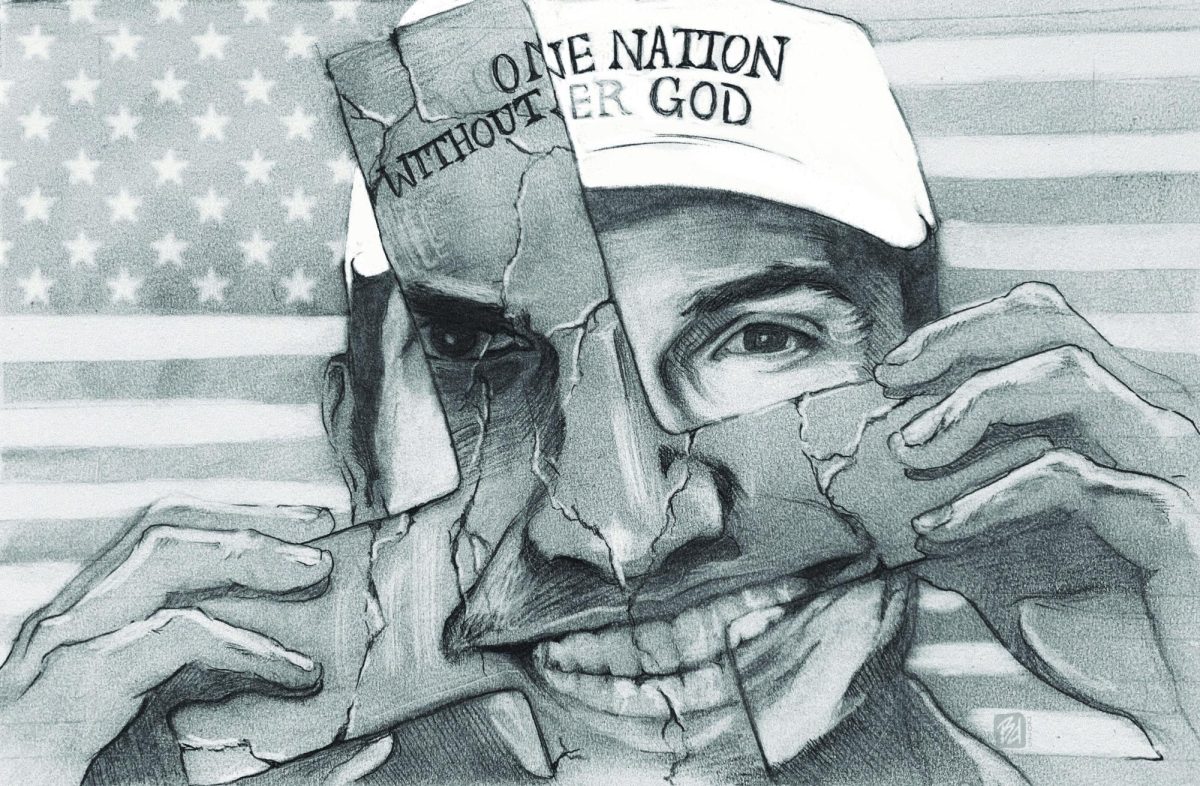I am, at times, ashamed to tell people I am a Christian. I feel that the popular image of Christianity has become so detached from the actual teachings of the Nazarene preacher and has become a force used by a dangerous few for political strong-arming. These people have donned the fitting moniker of “Christian nationalists,” a combination of words that should exist only in the purview of paradoxical thought experiments.
In March of 2024, the Pew Research Center found that a majority of Americans had never heard of the phrase or its proponents. While that number may have gone up in the time since that study, I am willing to bet there are a lot of people who have heard this phrase, but do not understand its fundamental misunderstanding of what Christianity is meant to be and the dire consequences it can have when enabled by the public.
This analysis will begin with breaking down the terminology of “Christian nationalism.” Christian being a reference to the religion of Christianity, the name given to followers of the teacher Jesus of Nazareth, whose most famous teachings come from the Sermon on the Mount, recorded in the Bible in the book of Matthew chapters 5-7. It teaches ideas such as: “Blessed are the merciful,” “Love even your enemies and pray for those who persecute you,” and “Do not store up for yourselves treasures on Earth.”
These teachings, alongside the idea of loving all those who bear the image of God (which is all of humanity, as the Bible says that God created man in His image), make for a life philosophy wherein you devote yourself to the betterment of the world around you first and yourself second, while not coveting the material world. I make these points because the nationalism part of Christian nationalism drives a wedge in the whole idea of loving the world.
Nationalism is the idea that society is made up of “nations,” and that they should each seek to work for the betterment of themselves and depending only upon themselves. On a philosophical level, that does not always mean that this betterment is at the expense of others, as cooperation can lead to collective good. However it ultimately ends up being a highly individualistic ideal. How can Christianity, a doctrine of acceptance and love, line up with this focus on the individual and driving division in the world? It simply cannot.
If this problematic philosophy were not concerning on its face, it gets worse when you look at the result of their combination. Christian nationalism in application typically leads to moralism. This is where popular Christianity diverges from the original teachings of Christ. A popular phrase, and one that is particularly apt in this situation, is that “you can’t legislate morality,” or, as Martin Luther King Jr. put in his 1963 address at Western Michigan University, “You’ve got to change the heart and you can’t change the heart through legislation.” Christianity is about setting yourself free from what binds you, and relying on your discipline, not the law, to grow in your faith. This is what Christian nationalism has lost in its pursuit of a “Christian nation.”
Christian nationalists think that since they want themselves to be free of sin, that everybody should be punished for living in what they see as sin regardless of that individual’s beliefs or convictions. Even in the Biblical sense, what is a sin for one person, may not be for another. It is all down to controlling your own urges when faced with them, rather than relying on the consequences of the law to determine what you should or should not do. Paul the Apostle said, “I have the right to do anything… but not everything is beneficial.” This quote is a fundamental idea held by both Christians and secular philosophies, yet these Christian nationalists have lost their way with this.
I say all of this as a plea to you, the reader. Christian nationalists are dangerous. They are twisting the words of the Bible and using it as a tool to control and weaponize their followers. People have done horrifying things in the name of misguided religion before and we are liable to see it happen again if we do not speak out. Educate yourself on doctrines of religions you may not understand and seek to understand rather than judge. Most importantly, watch out for anything that tries to speak for you or a belief system that you don’t want to be associated with, and fight hard against it. Your voice can be heard.








